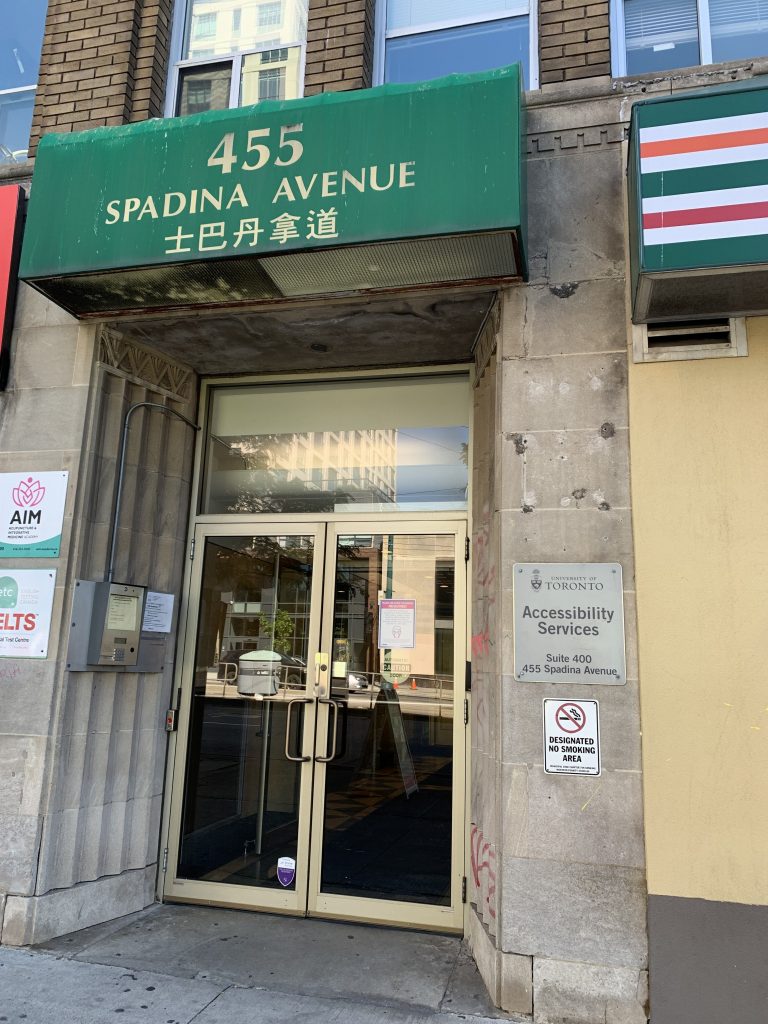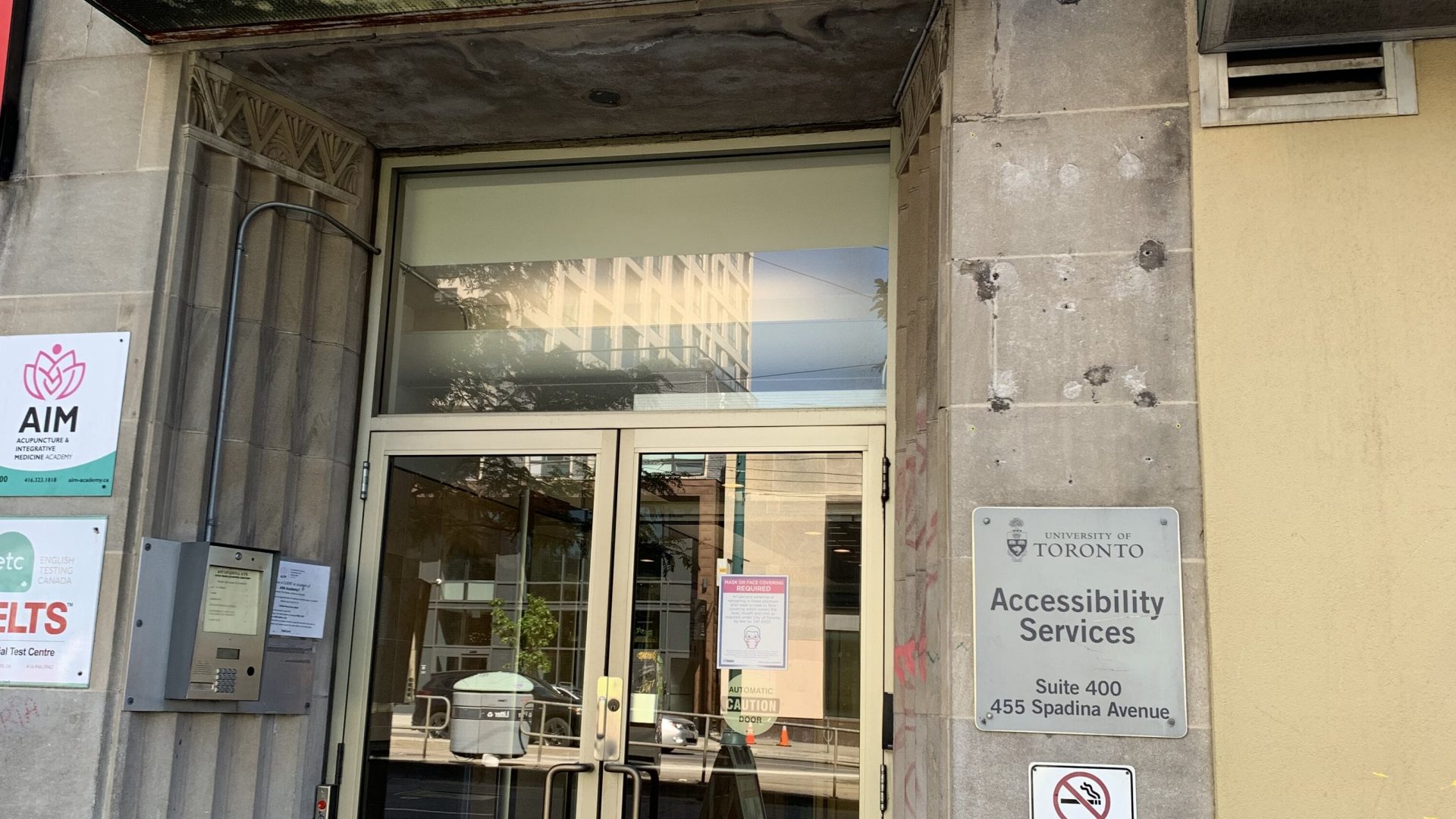This blog post is written by guest blogger Hannah, a second-year Master of Social Work student at the University of Toronto.
Although I have known that I am autistic since I was in my mid-twenties, I only received a formal diagnosis several years later. Many students with disabilities are in the same position and have trouble accessing assessments and formal documentation of their disabilities. This can be a barrier to registering with accessibility services because many students think they cannot register if they do not have a formal diagnosis of their disability.
My experience registering with Accessibility Services at University of Toronto was surprising to me, because I did not realize the options I had for documentation. I did not have a formal diagnosis, but I was able to ask my doctor to fill out a functional limitations assessment for me instead. In this way, I was able to receive accommodations even though I had not been able to get a formal autism assessment.

Often students don’t know they have a disability. Looking back at my student experience, I wish I had known that I was autistic earlier and had been more aware of accommodations and accessibility services. Autism and other disabilities are being talked about more in the media recently and more people are becoming aware that they may have disabilities as well, but when I was a teenager and in undergrad there was very little representation and it never occurred to me that I might be autistic and benefit from registering with Accessibility Services. Many students may still experience this and can be less likely to realize they have disabilities, or not wish to register with the office, because of internalized ableism and self-doubt. Sometimes this can cause students to worry about whether they really need accommodations.
I only started accessing support from Accessibility Services as a graduate student. I want other students to know that the purpose of accommodations is to make it possible for all students to be able to succeed in post-secondary. Having accommodations doesn’t make school easier, it just makes it possible for students with disabilities to access the same learning and career opportunities as their peers. Accommodations help reduce barriers to accessing and participating in education.
It is encouraging to see that Accessibility Services does outreach to students to help spread awareness about what the office does, what it is like to register with the office, and what accommodations are available. Since many students do not have a diagnosis and may be unsure if they have a disability, it is good that Accessibility Services tells students if they think they may have a disability to make an appointment even if they do not a diagnosis or are unsure. This helps remove barriers to students accessing accommodations.
I want to tell students that if you think you might benefit from extra support or talking with an accessibility advisor, please go ahead and reach out!
Want to be a guest blogger at Life At U of T? Check out our Submission Guidelines.

0 comments on “Overcoming Barriers with Accessibility Services”